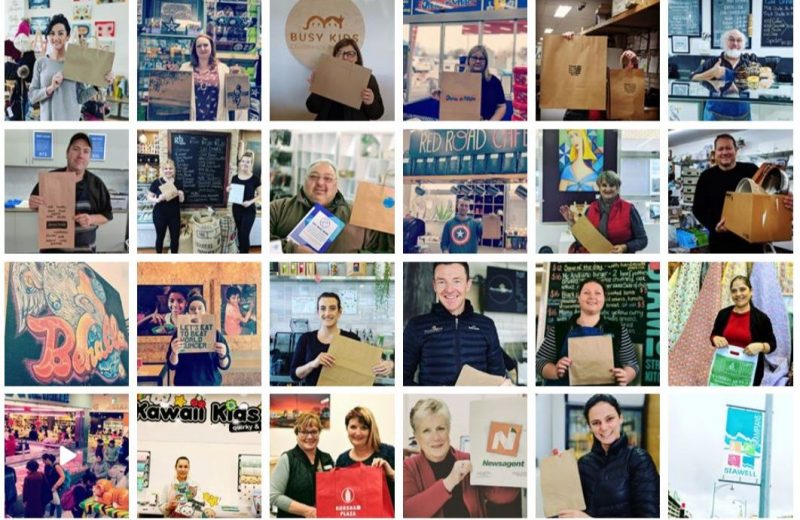As announced by the Victorian Government last year, it will be illegal to supply a customer with a lightweight plastic shopping bag in Victoria from 1 November 2019.
Over the past 6 months, the National Retail Association have been travelling across Victoria, engaging over 13,000 retailers in 180 locations to provide advice and support to businesses in the lead-up to the ban.
Victoria Bag Ban Recap
What is banned?
All lightweight shopping bags made in whole or part of plastic, with handles, that are 35 microns or less in thickness at any part of the bag, including biodegradable, degradable and compostable bags.
What isn’t banned?
The ban does not include barrier/produce bags used for unpackaged perishable produce (eg. fruit, meat, seafood), sealed product packaging (eg. bread bags), and does not include nappy bags, dog waste bags or bin-liners (but you cannot use these as substitutes for shopping bags).
Who does it apply to?
Every person or business that sells something in Victoria. For example, grocery stores, fashion boutiques, fast food outlets, restaurants, market stallholders, charity retail stores, convenience stores, petrol stations,…
Will penalties apply?
Under the legislation there will be two offences that will attract fines for non-compliance:
- Supply offence: Penalties will apply to retailers providing a banned plastic bag to another person to use to carry goods the retailer sells from the retailer’s premises.
- Information offence: Penalties will apply to a person who supplies or manufactures plastic bags who gives information that the person knows, or reasonably ought to know, is false or misleading (or withholds information) about the composition of a banned bag, or whether or not a bag is a banned plastic bag.
- The penalty for both of the above offences is:
- In the case of a natural person, 60 penalty units (this currently equates to approx. $9,900 per offence)
- In the case of a body corporate, 300 penalty units (this currently equates to approx. $49,500 per offence)
Do consumers support the ban?
The Victorian Government’s three-month public consultation in 2017-18 on the approach to banning lightweight plastic shopping bags attracted more than 8,000 submissions. 96% of submissions supported a ban on lightweight plastic shopping bags. While a brief adjustment period is expected, retailers who prepare their customers ahead of time report very few issues.
What alternatives are available?
The absolute best option is to not offer a bag if you can avoid it. Consider reusing stock boxes or encouraging customers to BYO bags. Reusable bags such as cotton, hemp, jute, and fabric are allowed and preferred. Recyclable bags like paper and cardboard bags are allowed (but we recommending using ones that are sustainably-sourced or recycled content). Heavyweight, reusable plastic bags are allowed but you may want to consider using heavyweight recycled content like those used by major supermarkets.
Important: If you choose to use plastic bags, we strongly recommend that you do not use bags close to the minimum thickness. The law states that a banned bag is a bag where any part of the bag is 35 microns or less. As plastic can be inconsistent, make sure your supplier provides written evidence that your bags do not fall below the threshold in any part of the bag, in any batch.
Should I charge for a bag?
Introducing a reasonable charge for bags is a great way to reduce volume and cost, even if the bags are technically legal. Retailers in other states with bans who have introduced more sustainable options along with a bag fee (while providing ample notice for their customers) report up to 90% drop in bag volume.
NRA research confirms that after a ban, 96% of customers are willing to pay for a bag if they forget their own, and they are more accepting of bag fees for truly reusable or recyclable bags rather than slightly thicker plastic.

